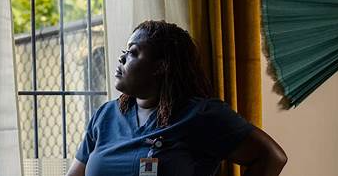The state’s increasing restrictions on alternative birthing options are pushing women to seek care elsewhere.
In the post-Roe landscape, Alabama has increasingly restricted access to birth centers, limiting women’s ability to choose non-hospital births. One of the facilities affected is Oasis Family Birthing Center in Birmingham, led by Dr. Heather Skanes. The center had long offered an alternative for women with low-risk pregnancies, providing a more personalized and natural birth experience that avoided common hospital interventions such as cesarean sections and epidurals.
At Oasis, midwives were in charge of delivering babies, with some women choosing to labor in a warm, inflatable water pool for a gentler birthing process. This approach was especially welcomed by Black women, who found a space where they felt more comfortable and heard. The center was seen as a haven for women seeking to avoid the clinical and often impersonal environment of hospitals.
However, in March, the Alabama Department of Public Health informed Dr. Skanes that the center, which had been operating without formal regulation, was now considered a hospital under state law. Because Oasis had not been granted the appropriate licenses to operate as a hospital, the state demanded the facility close its doors to most patients. The new restrictions meant that only patients who were in their third trimester when the crackdown occurred could still give birth at the center.
For many women who had planned to give birth at Oasis, this meant they had to find other options for care. The restrictions come at a time when birth options outside of hospitals were already becoming harder to access, due to both regulatory pressures and the broader legal climate following the Roe v. Wade reversal.
The state’s new policy was part of a larger trend that has seen increasing regulation of birth centers and midwifery practices. This includes a tightening of licensing requirements and heightened scrutiny of facilities that were once free from such oversight. Critics argue that these regulations are part of a broader effort to control women’s reproductive choices, limiting access to safer, less-medicalized birthing environments.
In response, Dr. Skanes and other advocates for midwifery care have pushed back, calling for better support for birth centers and greater recognition of the role midwives play in providing alternative birth experiences. Despite their efforts, the state’s decision represents a growing trend of restricting access to non-hospital birth spaces, which could leave women in Alabama with fewer options for their childbirth choices.
As Alabama continues to clamp down on these facilities, it is becoming more difficult for women to find options that align with their personal values and desires for childbirth. This restriction is leaving many expectant mothers without the choice to birth in environments where they feel empowered, heard, and supported. With fewer centers operating, more women will be pushed into the traditional hospital system, where they may not receive the care they were hoping for.

